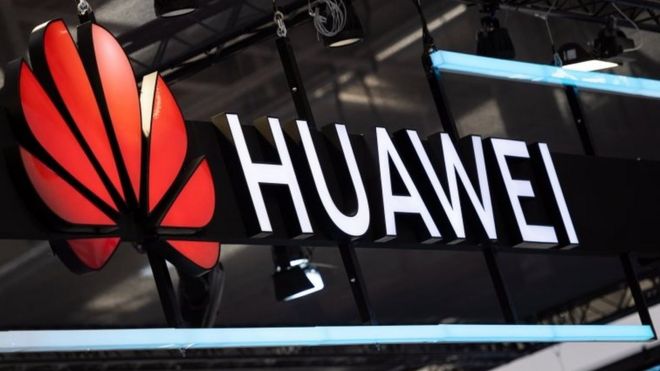
The momentous news that Google is cutting off its Android relationship with Huawei in response to a US government ban on the Chinese giant wasn't much of a surprise to Huawei.
The 90-day extension “doesn't mean much” and Huawei is fully prepared for the American actions, Ren said, even appearing to brag about luring workers away from U.S. companies.
“We are very grateful to the U.S. companies. They have made a lot of contributions to us,” he said in the comments, which were shared in real time by state media. “Many of our consultants are from American companies like IBM.”
Earlier, Huawei reacted to Google’s decision to stop allowing updates by saying the Chinese company had “made substantial contributions to the development and growth of Android around theworld.”
“As one of Android’s key global partners, we have worked closely with their open-source platform to develop an ecosystem that has benefitted both users and the industry,” said spokesman Joe Kelly, adding that Huawei would continue to provide security updates and after-sales services to its existingsmartphone and tablet products.
Google’s announcement came at an awkward time for Huawei, which on Tuesday is expected to unveil its Honor 20 series of smartphones in London, and security experts were divided on how quickly and severely the ban could hurt Huawei.
Some said Huawei is bigger and better prepared for the blockade than its Chinese competitor ZTE was last year when the Trump administration restricted ZTE from doing business with U.S. firms. The U.S. later eased ZTE’s punishment.
Unlike ZTE, Huawei makes some of its own semiconductor chips, and Huawei can tap alternative, non-U.S. suppliers for some parts and technology, analysts said. “There are very few [parts] they can’t just buy from Japan or Korea or France today,” said Dave Burstein, a telecom analyst for STL Partners who recently began publishing Huawei Report & News.
Huawei also has about $38 billion in cash and short-term securities it can tap to weather the storm, Burstein noted. And recent quarterly earnings reports from some U.S. tech firms have suggested that Huawei may have been stockpiling parts before the White House ban, in anticipation of a possible blockade, Burstein said.
Other analysts took a dimmer view of Huawei’s prospects. “They are still heavily, heavily dependent on U.S.-based companies for multiple different technologies,” said Geoff Blaber, vice president of research at CCS Insight.
Among the U.S. products Huawei most relies on, analysts said, is a semiconductor device called a Field Programmable Gate Array, or FPGA, which Huawei uses to build 5G telecom equipment. Huawei also relies on a type of U.S.-made software used to design high-end semiconductor chips, analysts said.
Google said it would restrict Huawei’s access to future updates of its Android operating software. But Huawei can still update Android itself because the software is open-sourced, meaning the source code is publicly available and can be accessed freely.
Existing Huawei devices that have Google apps and services should generally work normally and updates will still be provided, a person familiar with the matter said.
“While we are complying with all U.S. government requirements, services like Google Play [and others] will keep functioning on your existing Huawei device,” Google said in a statement on its Twitter account.
But Google is suspending licensing agreements with Huawei for access to its Play app store, meaning future Huawei customers won’t have popular Google apps such as Gmail, the Chrome browser and even YouTube. That would make future Huawei handsets very unattractive with rival devices offering the full set of Google apps.
“A smartphone without an app store is a paperweight,” said Roger Entner, an analyst with Recon Analytics, who focuses on wireless. “Huawei is extremely popular around the world, but there are many other options for consumers, so the choice to go with another handset should be easy.”
Huawei has indicated it has its own proprietary operating system it could use to replace Android, which by some estimates commands nearly 70 percent of the market for mobile operating systems globally. But Huawei would also need to persuade app developers to produce versions that would work on Huawei’s proprietary system.
Huawei sold about 200 million phones last year and was on pace this year to overtake South Korea’s Samsung as the world’s largest seller of mobile phones. That possibility would seem more remote, however, if the most popular Google apps remain unavailable to new Huawei customers. According to data released before the U.S. government listing, Huawei claimed 19 percent of the global smartphone market, research firm IDC said, trailing only Samsung’s 23.1 percent, which was on the decline.
One former Huawei executive, who asked not to be named to discuss internal company matters, said Huawei has spent years planning for a possible U.S. technology blockade. “When I was there were a lot of concerns about this throughout the company,” the former executive said. “They were trying to take steps to buffer this kind of existential threat.”
In addition to attempting to develop their own phone operating system to replace Android, Huawei invested heavily to design and manufacture more of its own chips, the former executive said.
Still, the U.S. ban could be “catastrophic” for Huawei, the former executive said. “I just don’t think you can properly prepare.”
Anna Fifield, Hamza Shaban, and Thomas Heath contributed to this report. Fifield reported from Beijing.
Tags
Mobiles
